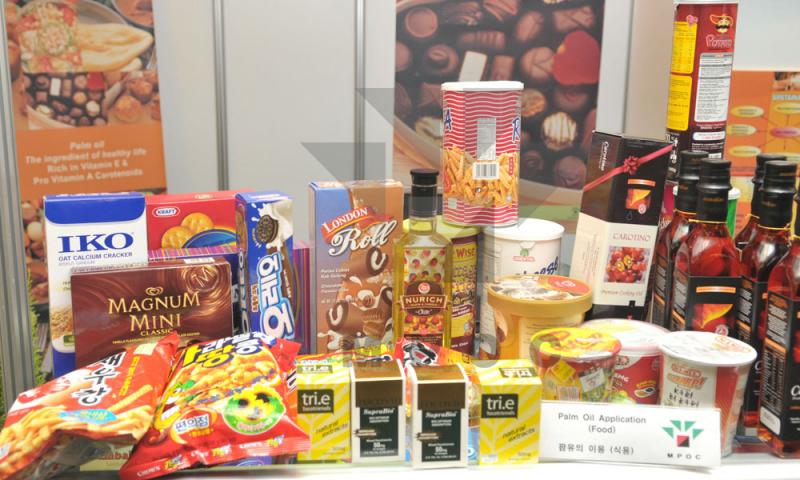Palm oil, the planet’s most widely consumed edible oil, is found in nearly everything from foods to cosmetics. Its omnipresence is shaping our daily life one way or another.
From supermarket to rainforest
An online video released by BBC on 27 March 2019 bumps us onto the stage of a wide debate. The 3-min-25-sec video takes us through a love-hate journey, putting palm oil in the spotlight, from supermarket to rainforest.
For people who shun palm oil, they might never use it for cooking but could hardly avoid it anyway. Why? Bread, chocolate, margarine, pizza and soap, are just a few examples of products containing this crucial ingredient from an exhaustive list.
Yes, palm oil is found in a wide range of products, unknowingly and beyond our imagination. What does it tell you? It is so versatile and efficient for a number of reasons. Let’s check out a few examples of how the distinctive features of palm oil are put to good use.
Margarine
Palm oil and palm kernel oil boast higher solids contents, making them a suitable component of margarine with little or no hydrogenation required. Their stable beta prime crystalline form ensures a finished product with a fine structure. And palm kernel oil itself contains short and medium chain length glycerides similar to those present in butter fat to give the right mouthfeel and melting characteristics.
Chocolate
Cocoa butter used in the manufacture of palm-based chocolate products consists of specialty fats obtained from palm oil and palm kernel oil, two ideal raw materials known for their excellent physico-chemical properties. They can be further modified to extend their range of utilisation. Chocolate products using palm-based fats do not require tempering, hence saving processing time. Chocolate made with palm-based cocoa butter substitute (CBS) has a good resistance to fat bloom for a shiny and attractive product appearance. With a low iodine value (IV) indicating low levels of unsaturated fatty acids, palm-based CBS are stable against oxidative deterioration for consistent quality.
Soap
Palm-based soaps are made from blends of palm oil and palm kernel oil or distilled palm oil and PK fatty acid. Palm stearin is another type of raw material for soap making. The low iodine value helps add hardness to the soap while promoting a stable and creamy lather. A freshly made good quality palm-based soap has a sharp and clean odour.
Self-evident popularity
Yes, it’s used in many foods, sometimes in large quantities. And in fact, it’s estimated to be present in almost half of the supermarket products, as the video narration goes.
The popularity of palm oil is self-evident as the video itself attributes that to the highly favoured advantages of palm oil. Its qualities make it a very useful raw ingredient in many ways. It has no trans fat, boasts a high melting point, and it’s cheap to produce.
“In fact, it’s not the palm oil that’s the problem,“ the narration continues, pointing to the keenly debated deforestation issue without naming where specifically it occurred, ironically.
The sustainable push
The truth is that – Malaysia, being a major palm oil producer, has been championing sustainable cultivation diligently.
Malaysia recognizes both the Roundtable on Sustainable Palm Oil (RSPO) and Malaysian Sustainable Palm Oil (MSPO) initiatives. The MSPO addresses sustainability issues and challenges in relation to the multi-stakeholders involved in the industry, which complies with Malaysian laws and ratified international agreements.
The MSPO standard describes the sustainability requirements for the production throughout the supply chain, from raw materials until the transport to consumers, involving some 650,000 smallholders in Malaysia. The move aims to establish, maintain and improve their operational practices within a standardised management system framework for sustainable production of palm oil.
In an effort to reinforce the sustainable practices, the Malaysian government requires both the independent and organised smallholders to be fully and mandatorily certified under the MSPO certification by 31 Dec 2019.
Both the RSPO and MSPO promote the growth and usage of sustainable palm oil products through credible international standards to reduce the environmental impact of palm oil plantation and production.
A reminder to a key solution
Interestingly, the video is self-explanatory, as it concurs that “sustainable palm oil” is the solution – that is, oil produced without hurting rainforests, people and wildlife.
It also brings our attention to the common sense or practicality of stop using palm oil. In fact, most campaign groups are not calling for a boycott. This is because palm oil is actually a very efficient crop – using fewer pesticides and land than its alternatives. Switching to crops like soy or rapeseed might actually be more environmentally destructive. It’s also a source of jobs and income for many local people.
Decrying irresponsible practices
Yes, we must condemn the irresponsible greed-driven commercialisation by industry players of all scales. While dealing with a bad apple that is spoiling the whole barrel, pushing for sustainable practices is definitely the way forward.


